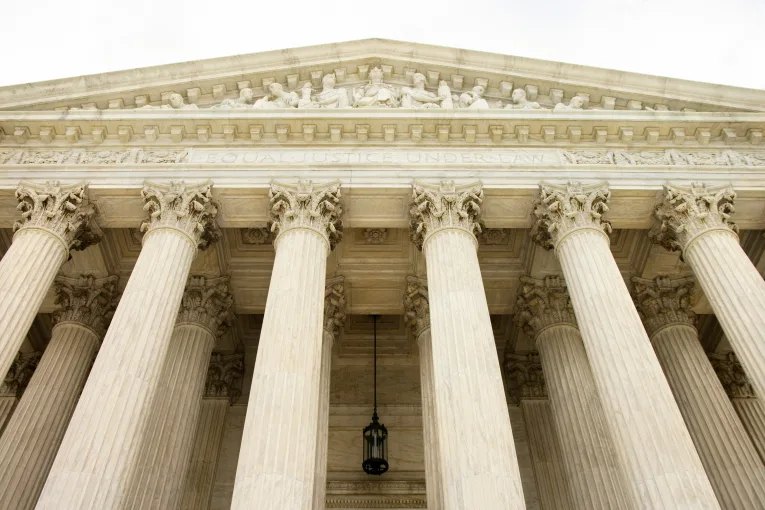
In the annals of American history, periods of political turbulence and constitutional challenges are not unprecedented. However, the tenure of Donald Trump as President has ushered in a new era of constitutional uncertainty that has left scholars, politicians, and citizens grappling with the implications for the future of American democracy. As legal experts continue to debate the characteristics and scope of a “constitutional crisis,” there is a growing consensus that the actions taken during Trump’s presidency have pushed the boundaries of executive power to a breaking point.
A constitutional crisis, though lacking a precise definition, typically arises when there is a fundamental clash between branches of government that threatens the constitutional order. Under Trump’s leadership, such a crisis has manifested through a series of actions that challenge both the letter and spirit of the U.S. Constitution. From attempts to revoke birthright citizenship and freeze federal spending, to dismantling independent agencies and undermining civil service protections, Trump’s administration has embarked on a path that many believe undermines the rule of law.
Erwin Chemerinsky, dean of the law school at the University of California, Berkeley, has been vocal in pointing out the lawlessness of Trump’s actions. He argues that systematic unconstitutional and illegal acts are the hallmarks of a constitutional crisis. The sheer volume and pace of these actions have not only overwhelmed the judicial system but also posed a significant threat to the checks and balances that are meant to prevent any one branch of government from becoming too powerful.
The judicial branch, traditionally seen as a check on executive overreach, faces a monumental challenge in this context. While the courts have managed to issue rulings against some of the administration’s actions, there is a real concern about their enforceability. The risk that Trump might disregard judicial decisions looms large, recalling historical instances such as the Southern states’ resistance to the Supreme Court’s ruling in Brown v. Board of Education. This potential for defiance underscores a critical vulnerability in the American legal system: the reliance on the executive’s willingness to adhere to judicial authority.
The crisis at hand is not merely about specific actions taken by the Trump administration but rather about a broader assault on constitutional norms. Kate Shaw, a law professor at the University of Pennsylvania, notes that the administration’s early moves seem designed to demonstrate contempt for core constitutional values, including the separation of powers and equal justice under the law. This systematic disregard for constitutional principles represents a significant departure from previous administrations, which, while sometimes testing the limits, never appeared to treat the Constitution as inconsequential.
The implications of this crisis extend beyond the immediate political landscape. They force us to confront the strengths and weaknesses of our constitutional framework and to consider whether the current systems are robust enough to withstand such challenges. The role of the Supreme Court is particularly crucial in this regard. While it has historically acted as a guardian of constitutional principles, the court’s ability to effectively counter executive overreach is now in question.
The reluctance of the Supreme Court to confront the executive head-on is partly rooted in historical precedents. Past presidents have occasionally ignored court rulings, prompting the court to issue decisions that it believed would not be flagrantly disregarded. The fear that Trump might ignore adverse rulings could lead the court to avoid direct confrontations, thereby exacerbating the constitutional crisis.
This moment in American history demands a reevaluation of the principles that underpin our democracy. It necessitates a reaffirmation of the values of equal justice, freedom of speech, and the separation of powers. Moreover, it requires a judiciary that is willing to assert its authority, even in the face of potential defiance.
As citizens, we have a critical role to play in navigating this constitutional crossroads. It is imperative that we remain vigilant and engaged, holding our leaders accountable and ensuring that no individual, regardless of their position, is above the law. The resilience of American democracy relies not only on the strength of its institutions but also on the resolve of its people to uphold them.
The path forward is fraught with challenges, but it is not insurmountable. It requires a concerted effort from all branches of government and, crucially, from the American people. We must work together to uphold the principles that have long defined our nation and to ensure that the constitutional crisis we face today does not become a permanent fixture of our political landscape.
The Trump presidency has brought to the forefront fundamental questions about the nature of presidential power and the integrity of the American constitutional system. As we navigate these turbulent times, it is essential that we remain committed to the ideals of justice, equality, and democracy. By doing so, we can ensure that our nation emerges from this crisis stronger and more resilient than ever before. The challenges are significant, but with determination and adherence to constitutional principles, we can overcome them and secure a brighter future for generations to come.